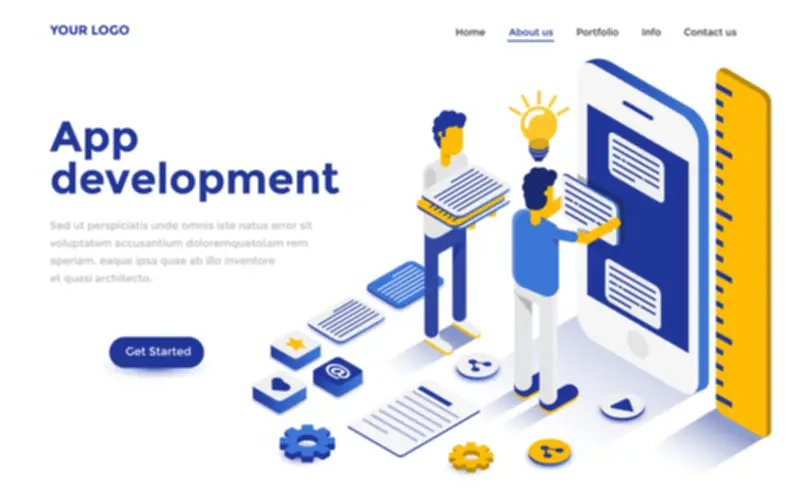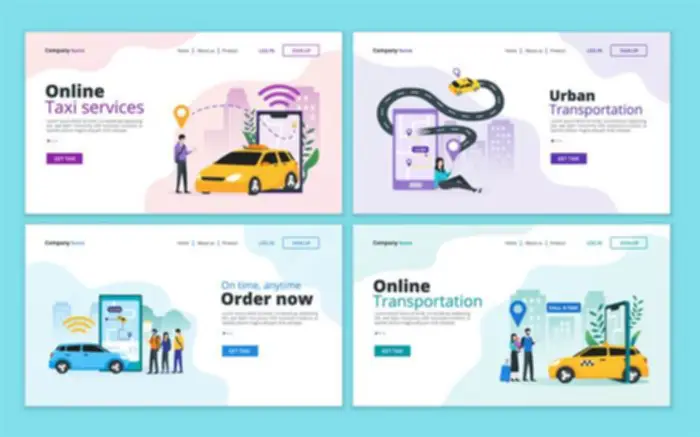Software development
Enterprise Utility Integration Eai The Nucleus To Your Enterprise Utility Universe !
Integration of enterprise functions helps in company efficiency and course of automation. Adequate communication amongst these apps is nonetheless very important to the environment friendly operations of the enterprise. The integration and adaptation of apps is important to the event technique of a company. They could add new shoppers to our system with out administrative resources being mobilized. Company application integration solutions contribute to improving the performance of companies that meet their enterprise goals What is Enterprise Application Integration. In truth, in accordance with a report published by a leading audit, advisory, and tax companies supplier, organizations are using 1,061 totally different applications today, out of which only 29% of them are built-in.
What Are The Completely Different Elements Of Enterprise Application Integration?
They usually crash and have bugs, and it is somewhat tricky to implement new performance. On the opposite hand, an ESB model is used to concentrate on standardized answer methods. For example, a message routing model to make sure the messages reach the suitable recipient application. Or a protocol translation mannequin to allow communication between totally different protocols inside your heterogeneous surroundings. RPA resolves real-world problems and so, concentrates on real life enterprise struggle areas – time & value. Thus, RPA reduces operational costs and executes the duties in unbelievably lesser time.

Eai (enterprise Utility Integration)

So, if staff from totally different departments choose completely different data units to course of the knowledge they want, the information variances can multiply tremendously. Overall, enterprise utility integration ensures that modifications within the data are correctly mirrored among all of the purposes and can be used consistently. For example, by integrating gross sales information with marketing and customer assist systems, a company can achieve useful insights into buyer habits and preferences. These insights can inform strategic selections, similar to targeting particular buyer segments with tailored advertising campaigns or bettering product offerings primarily based on buyer suggestions. EAI plays a crucial function in enhancing decision-making capabilities by offering a comprehensive and holistic view of business operations. When knowledge from varied systems is integrated, it creates a single source of fact that decision-makers can depend on.
Understanding Ai In Manufacturing: What It Means For Your Business
Juggling multiple software program instruments is time-consuming which ultimately reduces your team’s productivity. Instead, having a single interface connecting these software solutions can save a lot of time. Ultimately, EAI-powered data-informed decision-making enables a business to realize operational effectivity, identify opportunities and prepare for unforeseen challenges. Learn more about what EAI is, its benefits, challenges, and various fashions to choose from.
Ease Your Management & Data-sharing Activities!
The technology drives improved operational efficiency to the companies, serving to them determine opportunities for development and put together for the challenges sooner or later. One dependable solution is to make use of expert software engineering services to perform enterprise software integration (EAI). It will present a unified person interface on your applications, enable consistent, timely entry to all of your data, and more. Enterprise software integration seeks to simplify complex digital architecture and will increase business agility. Integration allows many companies, tools, and systems to work collectively to effectively full operational tasks.
Furthermore, the ESB model creates an oblique connection between methods that permits the development of easy functions. Presentation-level integration creates a virtual middleman for knowledge collection. Overall, this methodology supplies a suboptimal means for information integration and entry. Furthermore, buyer response time lags when workers work throughout poorly built-in applications.
With successful enterprise software integration, every of these tasks may be performed as a single workflow quite than in separate applications. Last however not least, Communication Level Integration is a selected method of Enterprise Application Integration, which is used to perform knowledge integration and enterprise course of integration across the group. For instance, if Data Integration is a fundamental human connection, then Communication Level Integration is deciding whether to write, dance, sing, or communicate. Yes, Enterprise Application Integration Software is designed to integrate with legacy systems. It addresses the challenge of connecting modern applications with older applied sciences by providing compatibility layers, adapters, and connectors.
Typically, these parts will implement detailed assist for API-specific methods. For RESTful companies, these methods are centred on using the usual HTTP verbs and URL assets. It envisages an ever-increasing dependency on cloud-hosted SaaS services, built-in primarily by way of REST APIs. Indeed, the ascendancy of REST and JSON as the idea for cloud-based service interchange is considered one of the chief enablers of iPaaS. They act as the cement for its foundations, offering a base stage of standardisation which offers vital advantages.
In case of any change either in software A or B, the interface requires updation in each. Also, after adding yet one more utility C, six connectors need to be deployed, up to date & maintained to completely integrate the functions ecosystem. This pattern language consisting of 65 integration patterns helps developers design and build distributed functions or integrate present ones. The patterns provide a technology-independent vocabulary and visual notation harvested from proven options to recurring issues. As a communal system, a hub-and-spoke integration offers a high degree of visibility and management effectivity. It eliminates the need for point-to-point dependencies, considerably decreasing the number of connections required.
- By leveraging APIs, data integration, event-driven architecture, and utility integration, we help you create flexible, enterprise-ready purposes.
- Enterprise application integration has never been easier than with cloud computing expertise, microservices architecture and Sumo Logic.
- With these ideas in mind, we will sketch the logical method to mediation taken by integration instruments and companies.
- However, they require additional tools and expertise to implement—capabilities that every one organizations might not have.
When it involves the dissimilarities between both, ERP has the central business processes whereas EAI has distributed business processes. Due to this, Enterprise Resource Planner offers greater cost creation, whereas Enterprise Application Integration renders a price advantage to the firms. ERP stands for Enterprise Resource Planner, which is a consolidated system that allows you to retailer and access knowledge from a single source. It automates varied functions of a company, like stock administration, CRM, invoicing, and generates reviews in real time. Enterprise Application Integration or EAI is the job of mixing the databases and workflows related to organizational applications to ensure that the business makes use of the knowledge constantly.
EAIF could be considered an integration-oriented EA framework, since it fashions processes, companies and mechanisms for ES. The term framework means normally a set of assumptions, ideas, values, and practices that constitutes a method of viewing actuality (ORourke et al., 2003). SOA is able to assist overcome all sorts of shortages in EAI and ESB applied sciences and provide a means for reusable services.
While this can be acceptable in plenty of scenarios, it does not provide the best approach to addressing enterprise integration requirements. Of course, developers can take care to ensure that they solely use these tools for mediation, separating out any enterprise course of integration into independently deployable providers. Merging automated business process integration logic with the mediation layer ought to be prevented where possible.
Besides, middleware helps builders construct and deploy purposes successfully. In business process integration, organizations make strategies to improve their efficiency and achieve desired enterprise goals by automating their processes. Various software integration strategies use completely different infrastructures to meet the wants of a enterprise. For example, some solutions transfer knowledge between specific subsystems, whereas others use an interconnected community to create a robust database. Moreover, when the purposes are effectively built-in, customers have an easy accessibility to personnel from various departments of the corporate. Integrated databases and workflows mechanically direct customer inquiries to the corresponding department, helping customers attain the right individual easily.
Transform Your Business With AI Software Development Solutions https://www.globalcloudteam.com/ — be successful, be the first!

